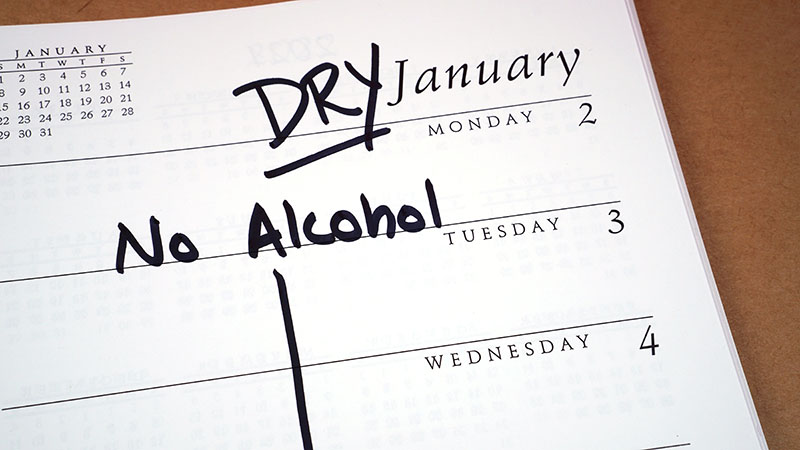2023 makes the 10th anniversary of the campaign known around the world as Dry January. Started in the U.K. in 2013, Dry January has become a worldwide phenomenon where, during the month of January, individuals start examining or reexamining their relationship to alcohol and taking steps to improve their overall health and wellness.

Dry January, in its most basic form, is a monthlong sobriety challenge that people take to stay abstinent from drinking alcohol for the entire month of January. It can be an effort to begin to get sober or find recovery from alcohol for individuals that may suffer from alcoholism or alcohol addiction, but it can also be an effort to simply increase an individual’s health and wellness journey. During the present time period, as Americans and people around the world are still dealing with the impact of COVID-19, it may never be as important as the present. Since March 2020, the statistics of people misusing alcohol have risen exponentially, the amount of alcohol sold throughout the country continues to rise, and more people are suffering from addiction and mental health issues than ever before. This also means more people are self-medicating with alcohol. Based on this information, consumer index research groups have found that over half of Americans (54%) say they want to reduce their alcohol intake. Dry January also annually occurs at a good time for people, as the holiday season that starts towards the end of each year also regularly sees people partaking in more drinking and alcohol use than they do at other points throughout the year.
Seeing the increase engagement in Dry January and other sobriety or abstinence-based health and wellness challenges, health experts have begun to vocalize how the impact of Dry January can have an increase in the health and wellness benefits to a person throughout the entire year. The overarching theme is that for people that participate in Dry January, those same people benefit by often continuing to drink alcohol less six, eight, or even twelve months later.
Dry January lines up well with the annual tradition of New Year’s resolutions, which often are made surrounding ideas like creating better health and wellness routines, losing weight, exercising more, or taking up more physical activity or a new fitness-focused initiative like joining a gym or taking a regular yoga class. All of these fitness, health, and wellness initiatives are beneficial, but wrapping them into action that also decreases alcohol intake or supports sobriety can be even more beneficial.
Here are some of the other benefits of taking part in Dry January:
- Better, more restful sleep
- Improved metabolism
- Weight loss
- Lower blood pressure
- Reduction in levels of insulin resistance
- Better, clearer, healthier skin
- More energy
- People mental health (reported decreases in levels of anxiety and depression)
- Elevate mood
- Stronger immune system
- Saving money due to spending less money on alcohol
- No hangovers or blackouts
- An improved relationship with alcohol, which can often be a detrimental, dangerous, or unhealthy relationship to have
Dry January offers numerous benefits, both from a health perspective and lifestyle perspective. There is little doubt that many people could stand to have an improved relationship with alcohol and their drinking habits. For those people that may have an unhealthy relationship with alcohol or suffer from substance use disorder, alcohol addiction or alcoholism, Dry January can offer the added benefit of starting to explore a journey of sobriety or recovery from addiction. As everyone knows, especially those that have gotten sober, sobriety and recovery is the greatest foundation to finding a high quality of life that includes a life of health and wellness.
If you or someone you know needs help for addiction or co-occurring disorders, please give us a call. Innovo Detox offers the latest in evidence-based medical, psychiatric, and clinical care for those in need of detox and medical stabilization in Pennsylvania and the surrounding Mid-Atlantic area. If we aren’t the best fit for you or a loved one, we will take the necessary time to work with you to find a detox, rehab, treatment center or provider that better fits your needs. Please give us a call at (717) 619-3260 or email our team at info@innovodetox.com. For more information on our company or services, please visit our website at www.innovodetox.com.
